About Sanctuary Centers
The Sanctuary Centers offer a wide variety of addiction and rehabilitation services to those in need. With locations in Santa Barbara, California, and across the state, they provide comprehensive care for those struggling with addiction. Services offered include alcohol rehab, dual diagnosis, opioid addiction, adult and elderly rehab, men’s and women’s rehab, young adult rehab, inpatient and outpatient rehab, partial hospitalization, aftercare support, and more. With a variety of therapy options available, the Sanctuary Centers are dedicated to helping you or your loved one find the path to recovery.
Addiction Treatment Programs
Alcohol Rehab
If you’re ready to overcome alcohol use disorder, an alcohol rehab in California can give you the tools you need. Whether you need detox, inpatient treatment, or outpatient care, an alcohol program will help you build a new lifestyle based on healthy coping mechanisms, better relationships, and a new way of thinking about life.
Dual Diagnosis
Many people with addiction issues also have a mental health diagnosis, which is known as a dual diagnosis. Be sure to find a rehab in California that can treat both. Whether you need detox, inpatient treatment, or outpatient care, a dual diagnosis program will offer specific support for your mental health needs alongside traditional substance use treatment.
Opioid Addiction
The goal of an alcohol rehab in California is to give you the tools and skills you need to achieve long-term recovery. During this program, you’ll work with professional counselors to deal with the psychological, emotional, and physical issues that opioid misuse can cause. Over time, you’ll learn how to live without substance use long-term.
Adult Program
An adult program in California addresses the unique needs of adults, such as finding secure housing, building a career, and raising a family. Whether you need detox, inpatient treatment, or outpatient care, an adult program will offer specific support for your emotional, mental, and social needs.
Men's Rehab
Choosing a men’s rehab in California can be a great way to manage gender-specific issues while also addressing substance use. Whether you need detox, inpatient treatment, or outpatient care, a men’s program will offer specific support for your emotional, mental, and social needs.
Women's Rehab
If you’re a woman struggling with substance use, consider a women’s rehab program in California. Whether you need detox, inpatient treatment, or outpatient care, a women’s program will offer specific support for your emotional, mental, and social needs.
Young Adult Rehab
Young adult rehabs in California address a wide range of substance use issues while also helping clients transition into adulthood. Whether you need detox, inpatient treatment, or outpatient care, a young adult program will offer specific support for your emotional, mental, and social needs.
Senior Rehab
Insurance Coverage
Self-pay options
Paying the full cost of rehab in California yourself is called self-pay. Some people write a check, some electronically send payment to the treatment center, and others get a medical loan. There may be different fee structures depending on the level of care.
Financial aid
One way to pay for rehab in California is to use financial aid programs if you qualify. Treatment programs may offer grants and scholarships to help you afford the cost of treatment, or you might find help from non-profits or other community groups.
Medicaid
One way to pay for rehab in California is to use Medicaid if you qualify for the coverage. You can find treatment centers that accept Medicaid offering multiple levels of care, including detox, inpatient, and outpatient. You may pay little or nothing out-of-pocket.
Levels of Care
- 1
Inpatient Rehab
There are multiple options for addiction treatment in California. During inpatient treatment, you live at the facility and are able to focus on creating a new way of life. During inpatient treatment, clients are able to work on their recovery through counseling, activities, and holistic treatment like mindfulness, art therapy, and more.
- 2
Outpatient Rehab
Attending outpatient treatment in California allows you to get evidence-based care without living in the facility, helping you establish long-term recovery. Building a new life for yourself takes time, and it’s important to have enough support throughout the process. Outpatient treatment allows you to have more intensive or less intensive help, depending on your needs.
- 3
Aftercare Support
Overcoming substance use is a lifelong process. Aftercare in California gives you the support you need to stay sober. Some aftercare programs will help you connect to community resources and social services in your area, from housing to healthcare to financial assistance.
- 4
Partial Hospitalization Program
Partial hospitalization programs (PHPs) in California allow clients to live at home or in a sober living facility while attending an intensive treatment program. PHPs provide focused therapy up to 20 hours per week that allows you to understand the roots of substance use, learn healthy coping skills, and create a new life.
Therapies
Cognitive Behavior Therapy
In California, cognitive behavioral therapy (CBT) helps you identify wrong thinking that can create impulsive actions. This makes it much easier to reach long-term recovery. Substance use treatment includes detox, inpatient treatment, and outpatient care, and CBT may be a part of each of these stages. The goal is to help clients identify distorted thinking, replace it with rational thinking, and change their responses accordingly.
Creative Arts Therapy
If you’re struggling with substance use in California, creative arts therapy can help you work through emotions so you can make positive changes. The goal of creative arts therapy is to help clients work through their emotions in a healthy way so they can start to understand the root cause of their substance use.
Dialectical Behavior Therapy
In California, dialectical behavioral therapy (DBT) helps you learn healthy coping strategies and build your ability to manage stressful situations. This makes it much easier to reach long-term recovery. Substance use treatment includes detox, inpatient treatment, and outpatient care, and DBT may be a part of each of these stages. The goal is to help clients develop the skills they need to solve the problems they face without substance use.
Family Therapy
Attending family therapy in California is a way to address broken relationships and dysfunction, helping you establish long-term recovery. There are several goals in family therapy. Some sessions may be focused on specific past events, while others address current broken relationships or how good intentions have gone astray. Over time, family relationships can be restored, making recovery easier.
Group Therapy
Attending group therapy in California is a way to overcome shame and isolation, helping you establish long-term recovery. Substance use treatment includes detox, inpatient treatment, and outpatient care, and group therapy may be a part of each of these stages. The goal is to help clients support each other, provide accountability, and relate to each other’s experiences.
Individual Therapy
During individual therapy in California, clients work with a professional to address specific individual concerns. Some of the topics covered in individual therapy include developing healthy coping skills, addressing past events that may have played a part in substance use, and building a support network.
Recreational Therapy
The goal of recreational therapy in California is to help you learn to trust and work with others so you can create positive change. During recreational therapy, you’ll participate in games, obstacle courses, nature exposure, and more, so that you can learn healthy relationship-building and gain confidence in your ability to overcome challenges.
Trauma Therapy
Trauma-informed therapy in California can provide a way to process past events and create better coping strategies as you work through substance use treatment. Both inpatient treatment and outpatient care can include trauma-informed therapy, which helps you create a feeling of safety, access peer support, embrace the validity of your feelings, and create healthy coping skills.
Animal Therapy
Assertive Community Treatment
Fitness Therapy
Accreditations
Location
Contact Sanctuary Centers
Top Drug Rehab Centers in California
-
 California
CaliforniaOptions Recovery Services Berkeley
1931 Center Street Berkeley, California 94704
-
 California
CaliforniaWindward Way Recovery
2787 Bristol Street Costa Mesa, California 92626
-
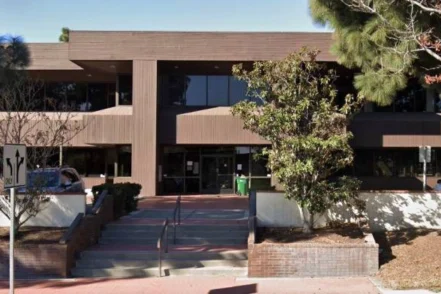 California
CaliforniaRenaissance Recovery
10175 Slater Ave, Suite 200 Fountain Valley, California 92708
-
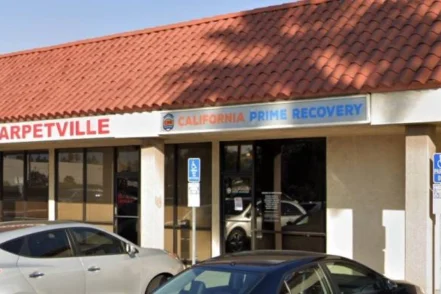 California
CaliforniaCalifornia Prime Recovery
17330 Newhope Street, Unit A Fountain Valley, California 92708
-
 California
CaliforniaCityteam Mens Program
580 Charles Street San Jose, California 95112
-
 California
CaliforniaCornerstone of Southern California Santa Ana
13022 Yorba St Santa Ana, California 92705
-
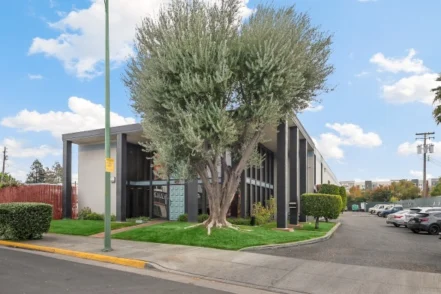 California
CaliforniaNew Life Recovery Centers 782 Park Avenue
782 Park Avenue, Suite 1 San Jose, California 95126
-
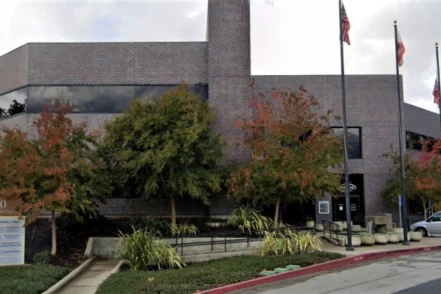 California
CaliforniaDiablo Valley Drug and Alcohol Services
100 Park Place, Suite 120 San Ramon, California 94583
-
 California
CaliforniaChabad Residential Treatment Center
5675 West Olympic Boulevard Los Angeles, California 90036
-
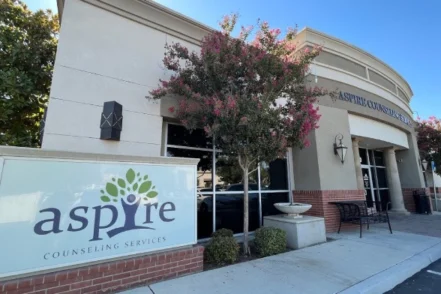 California
CaliforniaAspire Counseling Services
9830 Brimhall Road Bakersfield, California 93313
-
 California
CaliforniaNew Found Life Long Beach
2211 E Ocean Blvd Long Beach, California 90803
-
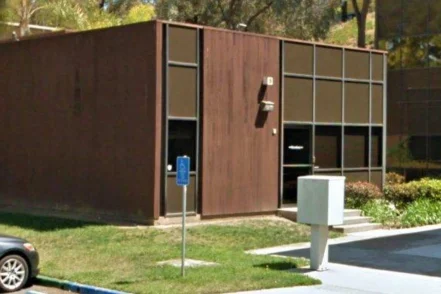 California
CaliforniaSHORELINE Recovery Center
183 Calle Magdalena, Suite 101 Encinitas, California 92024
-
 California
CaliforniaReflections Executive Rehab Facility
1191 Simmons Lane Novato, California 94945
-
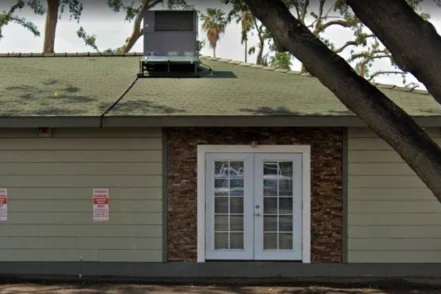 California
CaliforniaBakersfield Recovery Services IOP Services
2920 H Street Bakersfield, California 93301
Other Popular California Cities
Browse by California cities
- Calabasas
- Calexico
- Calistoga
- Camarillo
- Cameron Park
- Camp Pendleton
- Campbell
- Campo
- Canoga Park
- Canyon Country
- Capistrano Beach
- Capitola
- Carlsbad
- Carmel
- Carmichael
- Carson
- Castro Valley
- Cathedral City
- Century City
- Ceres
- Cerritos
- Chatsworth
- Chico
- Chino
- Chino Hills
- Chowchilla
- Chula Vista
- Citrus Heights
- City of Industry
- Claremont
- Clearlake
- Clovis
- Coachella
- Coalinga
- Coloma
- Colton
- Colusa
- Commerce
- Compton
- Concord
- Copperopolis
- Corcoran
- Corning
- Corona
- Corona Del Mar
- Corte Madera
- Costa Mesa
- Cotati
- Covelo
- Covina
- Crescent City
- Crestline
- Culver City
- Cupertino
- La Crescenta
- La Habra
- La Jolla
- La Mesa
- La Mirada
- La Puente
- La Quinta
- La Verne
- Ladera Ranch
- Lafayette
- Laguna Beach
- Laguna Hills
- Laguna Niguel
- Laguna Woods
- Lake Arrowhead
- Lake Elsinore
- Lake Forest
- Lake Hughes
- Lakeport
- Lakeside
- Lakewood
- Lamont
- Lancaster
- Lawndale
- Lemon Grove
- Lemoore
- Lincoln
- Live Oak
- Livermore
- Livingston
- Lodi
- Loma Linda
- Lomita
- Lompoc
- Long Beach
- Loomis
- Los Alamitos
- Los Altos
- Los Angeles
- Los Banos
- Los Gatos
- Loyalton
- Lucerne
- Lucerne Valley
- Lynwood
- Madera
- Malibu
- Mammoth Lakes
- Manteca
- Marina
- Marina Del Rey
- Mariposa
- Markleeville
- Martinez
- Marysville
- Mather
- Mcclellan
- Menlo Park
- Mentone
- Merced
- Middletown
- Mill Valley
- Mission Hills
- Mission Viejo
- Modesto
- Mojave
- Monrovia
- Montclair
- Montebello
- Monterey
- Moorpark
- Moreno Valley
- Morgan Hill
- Mountain View
- Murrieta
- Pacific Grove
- Pacific Palisades
- Pacifica
- Pacoima
- Palm Desert
- Palm Springs
- Palmdale
- Palo Alto
- Palos Verdes Peninsula
- Panorama City
- Paradise
- Paramount
- Pasadena
- Patterson
- Perris
- Petaluma
- Pico Rivera
- Piru
- Pittsburg
- Placentia
- Placerville
- Playa Del Rey
- Pleasanton
- Pollock Pines
- Pomona
- Port Hueneme
- Porterville
- Poway
- Sacramento
- Salinas
- San Anselmo
- San Bernardino
- San Bruno
- San Carlos
- San Clemente
- San Diego
- San Dimas
- San Fernando
- San Francisco
- San Jacinto
- San Jose
- San Juan Capistrano
- San Leandro
- San Lorenzo
- San Luis Obispo
- San Marcos
- San Martin
- San Mateo
- San Pablo
- San Pedro
- San Rafael
- San Ramon
- San Ysidro
- Sanger
- Santa Ana
- Santa Barbara
- Santa Clara
- Santa Clarita
- Santa Cruz
- Santa Fe Springs
- Santa Maria
- Santa Monica
- Santa Paula
- Santa Rosa
- Santa Ynez
- Santee
- Saratoga
- Sausalito
- Scotts Valley
- Seaside
- Sebastopol
- Sherman Oaks
- Sierra Madre
- Signal Hill
- Simi Valley
- Skyforest
- Solana Beach
- Sonora
- Soquel
- South El Monte
- South Gate
- South Lake Tahoe
- South San Francisco
- Spring Valley
- St. Helena
- Stanton
- Stockton
- Studio City
- Sun Valley
- Susanville
- Sylmar

